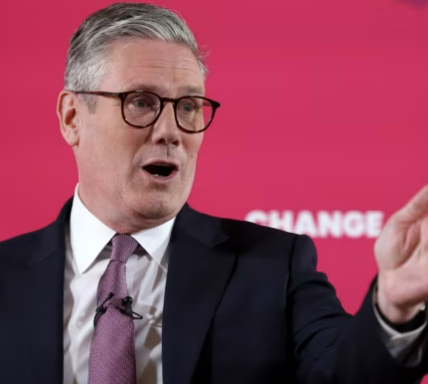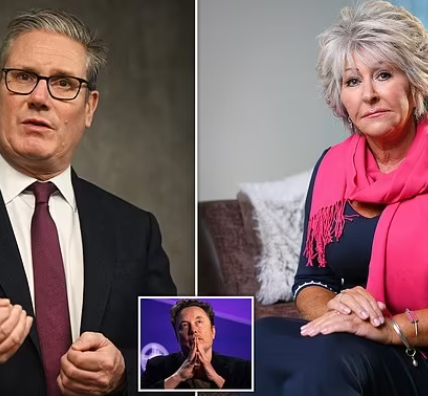Mr Mercer apparently asked Mr Carns to come forward to the inquiry – but it is understood he declined to do so.
The Mail learned that Mr Carns was one of his sources from two unrelated individuals before approaching Mr Mercer, who refused to comment.
Today a Ministry of Defence spokesman confirmed that it was not until July that Mr Carns wrote to the inquiry to offer his support – five months after Mercer was threatened by a judge for protecting his sources.
In the interim period Mr Carns was selected by Labour to stand for a parliamentary seat, won the constituency in the general election and was then selected as a minister.
During this time he failed to provide any evidence to the inquiry from his personal experience and knowledge, which could have been relevant to the court.
Mr Mercer has previously spoken of the ‘unacceptable pressure’ he was placed under from the inquiry to name whistleblowers. He said his sources were ‘vulnerable’.
Before entering politics Mr Carns led four tours of Afghanistan and was decorated for bravery while participating in Special Forces operations.
Mr Carns, 44, grew up in Scotland and joined the military aged 19. He left the Royal Marines earlier this year having reached the rank of colonel.
Former UK military intelligence commander Phil Ingram said: ‘This revelation generates more questions than it answers.
‘Al Carns needs to explain what he knows, why he confided in Johnny Mercer and why he has let him continue to suffer the threats of jail from the head of the enquiry.
‘His actions seem at odds with his current role as Defence Minister for People and Veterans and unless answers come out quickly I will be surprised if he can stay in post.’
Leading judge Lord Justice Haddon-Cave (pictured) is currently heading an investigation into claims the SAS executed up to 80 Afghans while in UK custody
In 2011 he was awarded the Military Cross (MC) ‘in recognition of gallant and distinguished services in Afghanistan’, and he received an OBE in 2022.
From 2017 he served as an adviser to three UK defence secretaries, in which role he would have been fully aware of the situation surrounding allegations against UK Special Forces in Afghanistan.
This period also coincided with Operation Northmoor, an initial Royal Military Police investigation into alleged SAS war crimes in Afghanistan.
Mr Carns was appointed Minister for Veterans and People at the Ministry of Defence just days after winning a parliamentary seat for the first time at the General Election on July 4.
His ministerial responsibilities include the welfare of armed forces families, veterans and the service justice system.
That he appears to have allowed Mr Mercer to be threatened by the inquiry for withholding his identity – when he could have come forward himself – could lead to Mr Carns facing questions about his suitability to hold a ministerial appointment.
Mr Mercer remains under the threat of criminal action. An appeal by the former MP against the threat was rejected by the inquiry.
Mr Mercer and Mr Carns were previously close friends, having fought side by side against the Taliban.
They have not spoken since Mr Carns stood for Labour at the general election.
Mr Mercer (pictured) remains under the threat of criminal action. An appeal by the former MP against the threat was rejected by the inquiry
Mr Carns’ decision to leave the Royal Marines after 24 years to becoming an MP surprised many of his colleagues. He was due to be promoted from colonel to brigadier and was expected to rise further in the corps.
Had he ascended to that higher rank he would have been the youngest brigadier in the armed forces and a potential future candidate to become Chief of the Defence Staff, the head of the armed forces.
Instead he chose Parliament. Much of his service history cannot be made public for security reasons due to the delicate and daring nature of his roles.
But while in Afghanistan he learned a lot about the controversial tactics adopted by the SAS in a bid to eliminate the threat posed by Taliban roadside bomb units.
The ongoing public inquiry has heard evidence that SAS squads would raid Afghan compounds at night and arrest suspects, then execute them rather than returning them to base for further questioning.
The rationale was that there was effectively no judicial process in Helmand Province, so the bomb makers would be released, the hearings at the High Court in London were told.
As the SAS could not be seen to be murdering fighting age males taken into UK custody, they apparently covered their tracks, including falsifying reports.
Photographic evidence would be submitted to suggest the deceased had been engaged in combat at the time he was shot dead.
The inquiry’s hearings have taken evidence from witnesses including former Defence Secretary Ben Wallace (pictured)
The court has heard that, in fact, SAS squads would purposely place a weapon next to the corpse for photographic purposes. This tactic became known as ‘drop weapons’.
The Mail understands Mr Carns – like many UK Special Forces commanders in Afghanistan – was aware of the ‘drop weapons’ tactics.
In an interview during the general election campaign Mr Carns said Britain ‘needed leadership’ and that ‘Keir Starmer, without a shadow of a doubt, is the person who can provide it’.
He also described the shock of other Royal Marines officers regarding his career change: ‘My phone didn’t stop ringing. I had never strongly expressed political views, because we are meant to be apolitical while serving.
‘My view is that the military is all about public service and I want to extend that to politics, a broader church.’
When approached by the Mail Mr Mercer refused to comment. He remains under the threat of a Section 21 notice by the Afghanistan Inquiry as he still refuses to name his sources.
A Ministry of Defence spokesman said: ‘We are fully committed to supporting the Independent Inquiry relating to Afghanistan as it continues its work.
‘Within a week of being appointed, the Minister for Veterans and People wrote to the inquiry to offer his support.’









